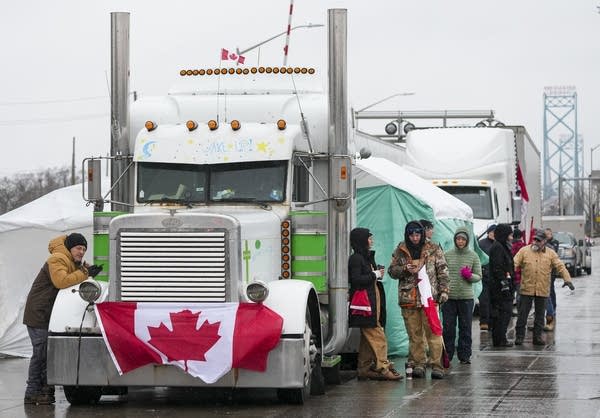Ontario declares an emergency over truck blockades in Canada

Truckers and supporters block the access leading from the Ambassador Bridge, linking Detroit and Windsor, Ontario, as protests continue against COVID-19 vaccine mandates and restrictions on Friday.
Nathan Denette/The Canadian Press via AP
Go Deeper.
Create an account or log in to save stories.
Like this?
Thanks for liking this story! We have added it to a list of your favorite stories.


